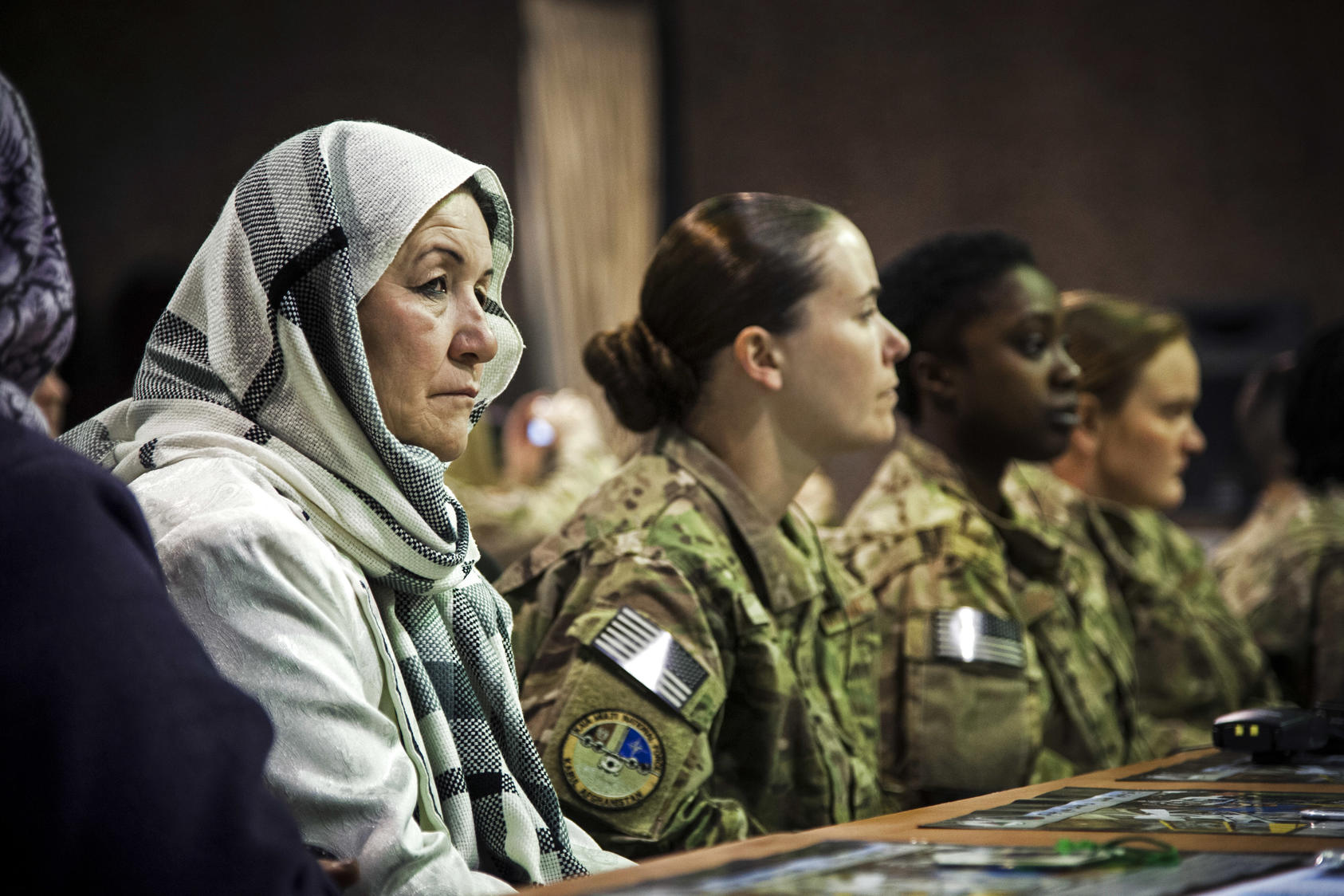Secretary Hegseth Ends WPS Program Despite Joint Staff Support

“This morning, I proudly ENDED the ‘Women, Peace & Security’ (WPS) program inside the @DeptofDefense,” Secretary of Defense Pete Hegseth posted on social media on April 29. “WPS is yet another woke divisive/social justice/Biden initiative that overburdens our commanders and troops — distracting from our core task: WAR-FIGHTING.” For this reason, he announced, “DoD will hereby executive [sic] the minimum of WPS required by statute, and fight to end the program for our next budget.”
Contrary to the secretary’s characterization, it was President Trump who signed into law the Women, Peace and Security (WPS) Act, which seeks to to increase the role of women in national security sectors, in 2017. The first Trump administration voiced support for the program and its implementation. And as The Hill reports, “The Trump campaign website even cited the initiative as one of his top accomplishments for women during his first term.”
Hegseth justified his decision by pointing to the military’s own preferences: “Politicians fawn over it; troops HATE it,” he wrote. But according to a recent unclassified Joint Staff memorandum sent to the defense secretary’s office and obtained by Lawfare, nearly every combatant command in the U.S. military recommended maintaining the WPS program and touted its benefit to national security.
“WPS ultimately contributes to a more secure Homeland,” the memorandum concluded.
On April 15, two weeks before Hegseth’s social media post, Joint Staff Director Douglas A. Sims issued a memorandum addressed to the under secretary of defense for policy with the subject line, “Way Forward on Department of Defense Implementation of the Women, Peace, and Security Act 2017.” Based on input from the leaders of the combatant commands, Joint Staff submitted a recommendation to the office of the under secretary of defense for policy—and ultimately Secretary Hegseth himself—on the future of WPS implementation. The Joint Staff’s mission is to provide recommendations to the secretary of defense and ultimately support the decisions made by civilian leadership.
Out of three apparent proposed courses of action reviewed by the Joint Staff and combatant commands, Director Sims recommended “course of action (COA) 3,” which would maintain WPS legal requirements and “mitigate[] operational risk to Combatant Command (CCMD) execution of Secretary of Defense priorities, while reducing the Department of Defense's (DoD’s) WPS program.” The memorandum noted that eliminating WPS legal requirements, proposed by COA 1 and COA 2, would require congressional approval. The recommendation to adopt COA 3 suggests that U.S. military leaders understood the need to limit expansion given the current administration’s priorities but did not believe the program should be cut entirely.
In support of the officers’ recommendation, the joint staff director notes that maintaining the WPS program “provides operational value to the Joint Force” and calls WPS, which costs the Defense Department less than $5 million annually, “a low-cost, high-yield uncontested advantage over our competitors.” He further states that “China and Russia have no equivalent of WPS,” and that the combatant commands’ 80 engagements with partners over the next two years under the program “counter China by gaining access to a population China largely ignores.” The director continues that WPS engagements “prevent radicalization by violent extremist organizations and disrupt the smuggling of narcotics, weapons, and humans into the United States.”
An associated coordination sheet indicated that officials from every major combatant command and from several other military components either concurred or concurred with comment on the recommendation. Only one component did not concur, but nor did it dissent—it was listed as “copy provided.”
Yet despite the Joint Staff’s praise of the program and recommendation to continue its implementation, Secretary Hegseth concluded his own social media post with “GOOD RIDDANCE WPS!” The “troops” he was referring to who “HATE” the program apparently don’t include the leadership of ten combatant commands of the U.S. military.
The Department of Defense did not respond to a request for comment by the time of publication.





